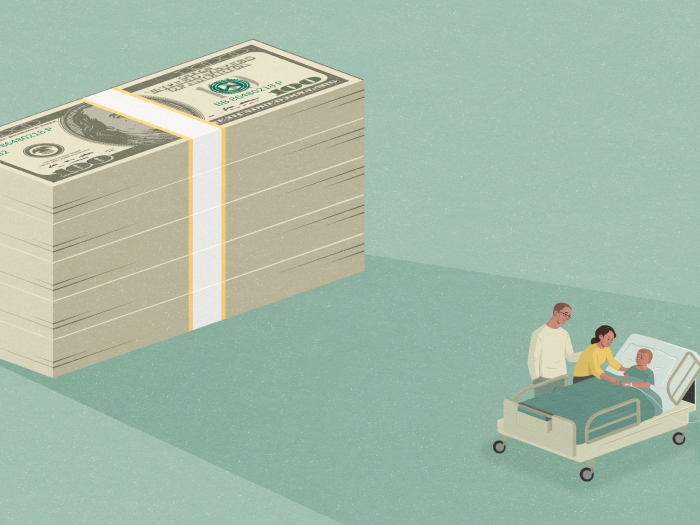Although infants with these craniofacial anomalies have much in common with other newborns, their condition requires special care and surgery.
7:00 AM
Author |
No parents want to hear the news that their unborn child has a cleft lip or palate.
Learning that their baby will have a craniofacial difference leaves moms- and dads-to-be with high emotions and, naturally, many questions about their child's health and ability to function.
MORE CHILDREN'S HEALTH: Subscribe to our weekly newsletter
"The first step is to stay calm," says Carolyn Walborn, N.P., a pediatric nurse practitioner at University of Michigan C.S. Mott Children's Hospital.
With preparation and corrective surgery, children with cleft lips and palates can live full, active lives.
"We like to reiterate to parents that children with clefts are just normal kids," says Walborn, who works in the Craniofacial Anomalies Program at Mott. "Their progression of development and dietary needs is the same as any other newborn and toddler."
Looking forward, she adds, "they're athletes, they're ballerinas, they're teachers and doctors."
The condition, which can develop without a family history, affects between one in 750 to one in 1,000 babies. At Mott, which houses one of the largest programs of its kind in the United States, more than 500 new patients are treated each year.
Walborn shared some words of wisdom and comfort for expectant families.
It can't be prevented: Parents sometimes express feelings of guilt — was it something they did? Walborn assures them no one is at fault. "It's a product of genes and environment," she says. "Most of the time, we don't know what causes it." Still, doctors will order a genetics workup after a baby is born to help rule out any other underlying issues.
Resources are available: Waiting can be the hardest part for families. While there is no prenatal medical intervention available for babies with a cleft lip, information can be empowering.
When a cleft lip or palate is spotted on an ultrasound — typically at the 20-week visit — the U-M team offers a special prenatal consultation with a craniofacial nurse practitioner, often on the same day. That, Walborn says, "helps parents develop a sense of confidence for what to expect and equips them with information about how to prepare for their baby's special needs."
Families can also explore online resources and connect with organizations like the Children's Craniofacial Association.
Feeding will be different: Although they shouldn't have significant differences in weight, babies with a cleft lip or palate may initially have trouble sucking on a nipple or traditional bottle. Specially designed bottles will help. Walking families through the feeding experience is an important part of the prenatal consultation, Walborn says.
SEE ALSO: Helping Other Kids Understand Your Child's Craniofacial Differences
Surgery will be required: Every case is different, Walborn notes, but it's likely that a child will undergo a surgery to correct the anomaly. Depending on a child's circumstances, optimal surgical methods vary with the number of surgeries each child may require. Among them: repairs to the lip or palate, or both; a bone graft; and nasal surgery.
Teamwork is key: Although they might not all be necessary at first, surgeons, orthodontists and other clinicians will have roles in your child's care. Choosing a multidisciplinary craniofacial program will go a long way toward making your journey as smooth as possible.
Connect with others: Interacting with other families who have been down the same path can be helpful. "Many of our families have connected through our Facebook page," Walborn says. "It can be very powerful for parents at the beginning of the craniofacial journey to see how well older kids with these same conditions are thriving."
Beyond online networking, Mott teams also can directly connect new parents with other families whose children have a cleft lip or palate for added support. "Knowledge is a very powerful tool," Walborn says. "In the long run, it helps the kids, too."

Explore a variety of healthcare news & stories by visiting the Health Lab home page for more articles.

Department of Communication at Michigan Medicine
Want top health & research news weekly? Sign up for Health Lab’s newsletters today!





